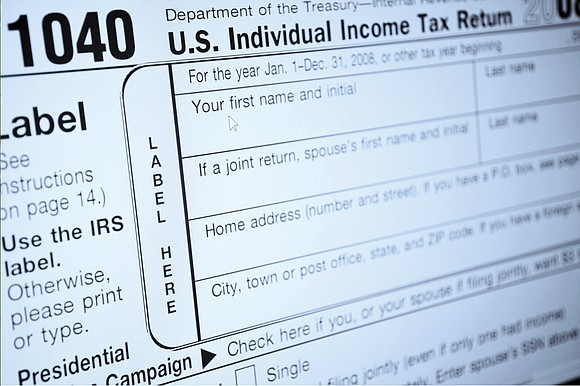Tax time
Free Press staff, wire reports | 5/13/2021, 6 p.m.
Monday, May 17.
That’s the deadline for Virginians to file their federal and state income taxes for the year 2020.
The Internal Revenue Service extended the deadline this year for individual federal tax returns from the typical April 15 dead- line to May 17 because of the coronavirus pandemic, giving most Americans an extra month to file.
The state of Virginia then extended its typical May 1 deadline to match the May 17 IRS deadline.
State and federal officials are encouraging taxpayers to file electronically and request refunds via direct deposit. Virginia officials said it usually takes up to four weeks to process an electronically-filed return, and up to eight weeks to process a paper return. But because of COVID-19 protocols this year, it likely will take even longer for a paper return to move through the system, state officials said.
Individuals must file a tax return to claim any refund they are owed.
Through April 30, the IRS has received more than 121 million individual tax returns and processed more than 110 million. So far, the agency has sent out more than 81 million tax refunds to Americans with an average check of $2,865.
Here are a few items to know before filing 2020 taxes:
• Stimulus payments: The two rounds of stimulus payments sent to millions of Americas are not taxable income. But people who did not get their payments, or received less than they were due, can get the proper amount by claiming the Recovery Rebate Credit on their 2020 taxes.
As a reminder, the first round of payments was worth up to $1,200 per eligible adult and $500 per dependent. The second round was worth up to $600 for each eligible household member. Those who received a larger economic impact payment than they were due will not be penalized.
• Unemployment: The American Rescue Plan made some tax changes in this area. For the millions of Americans who lost jobs due to COVID-19, the first $10,200 of unemployment benefits is now exempt from federal taxes for those with income under $150,000. The exemption is $20,400 for a couple with the same income.
Parents also need to file a 2020 tax return to make sure that the IRS has accurate information for them to claim the enhanced child tax credit, which is scheduled to begin monthly payments in July.
• Home office: Working from home became the norm for many in 2020, but few will be able to claim their expenses for their new home office setup. That’s because the home-office deduction can only be taken by businesses or the self-employed. Employees can no longer claim any unreimbursed ex- penses following the last tax overhaul.
To properly claim a home office, it must be used “exclusively and regularly” as the principal place of business, said Lisa Greene- Lewis, a CPA and tax expert at TurboTax. That means the table where kids do their homework, the family eats dinner and you do your work does not count.
Side note: It won’t affect your federal taxes but if you relocated to a different state during the pandemic, you may owe state taxes in more than one location.
• Tax credits: Congress put a temporary “lookback” provision in place for this tax season that could help many low and moderate income households.
The provision allows taxpayers to use either their 2019 or 2020 income when claiming the Earned Income Tax Credit or Child Tax Credit. The eligibility and size of these credits vary based on household size and income. In general, the less earned, the larger the credit.
However, rampant unemployment put some families at risk of missing out or getting a smaller credit as unemployment is not considered “earned income” in the eyes of the IRS. In response, lawmakers are allowing taxpayers to pick which year’s income would yield the greatest benefit.
• Gig work: If you jumped into gig work, like many did during 2020, be ready. A big shock may be facing you with the self-employment tax rate, which for 2020 is 15.3 percent on the first $137,700 of net income to cover Social Security and Medicare tax. This is not the same as income tax.
One way to help offset this strain is to make sure to claim all your expenses, said Ms. Greene-Lewis. This includes supplies, advertising or marketing startup costs, or any equipment or dedicated home office.
• Charity: One bright spot for the year is a new, temporary deduction for charitable donations.
Taxpayers can deduct up to $300 for cash donations given to charity even if they don’t itemize their deductions. The IRS estimates that about nine in 10 taxpayers now take the standard deduction instead of itemizing.
• Penalties and extensions: Taxpayers can accrue penalties and interest for failing to file a federal return and they owe the IRS money, or for failing to pay the entire amount due.
The deadline for payment is May 17 regardless of whether an individual files an extension.
To get a federal extension, you must submit form 4868 to the IRS. You then have until Oct. 15 to file.







